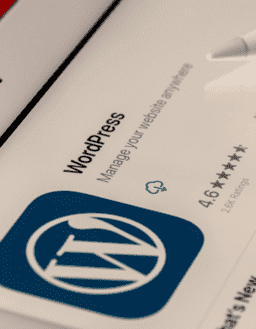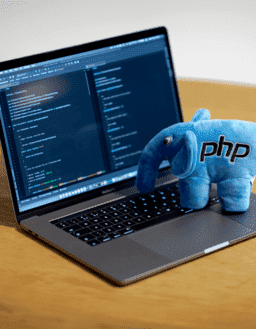
The use of artificial intelligence is no longer limited to large organizations with specialized research facilities and substantial financial resources. It is equally applicable and available to small and medium-sized businesses in the United States today. Many owners now ask how to employ AI in a way that yields quantifiable, tangible results rather than whether to use it at all.
In order to increase productivity, reduce expenses, and improve customer relations, small and medium-sized enterprises can implement the useful AI use cases examined in this article. Practical applications and AI tools for small businesses that address common problems are prioritized over intricate theory.
Enhancing Customer Engagement and Support
Customer expectations are higher than ever, but small businesses often lack the manpower to provide constant availability. Hiring additional staff for round-the-clock coverage is rarely an option, leaving customers with slower responses and, in some cases, unmet needs.
This is where conversational interfaces, commonly known as chatbots, prove their worth. Powered by machine learning and artificial intelligence, chatbots can be deployed on websites, social media platforms, and even mobile apps to provide instant assistance. These systems handle frequently asked questions, guide customers through processes like order tracking, and even recommend products based on past behavior.
The benefits are significant. Customers enjoy shorter response times, meaning frustration is reduced, and satisfaction increases. Human employees are freed from repetitive queries, allowing them to focus on high-value conversations that require judgment or empathy. Unlike human staff, chatbots deliver consistent service 24/7, ensuring that no inquiry is missed. Additionally, the data collected from these interactions offers valuable insights into customer concerns and behavior, which can be used to refine offerings and improve operations.
For small businesses in the U.S. looking to scale their customer service without the overhead of a larger team, chatbots represent one of the most effective AI applications in business today.
Optimizing Marketing and Content Creation
For many small business owners, marketing is one of the most time-consuming aspects of running a company. Crafting compelling content, planning campaigns, and ensuring consistent communication across channels can feel overwhelming, especially with a lean team.
This is an area where AI tools shine. With the help of artificial intelligence tools, small businesses can automate large portions of their content creation and personalization efforts. AI assistants can generate blog post outlines, suggest engaging social media captions, and even draft email subject lines tailored to specific customer segments. Beyond text, AI also enables the creation of visuals, helping businesses maintain a polished online presence without hiring a large creative team.
The advantages extend well beyond efficiency. Personalization powered by artificial intelligence in business leads to stronger connections with customers. Instead of generic campaigns, businesses can target specific audiences with tailored messages that drive higher engagement and conversions. Data analytics within these AI applications in business also help evaluate performance, making it easier to understand what resonates and adjust strategies accordingly.
In short, with the right AI tools for small business, even a two-person marketing team can operate with the effectiveness of a larger department.
Streamlining Administrative and Operational Tasks
Every small business owner knows how much time is consumed by tasks like data entry, scheduling, and document management. These activities, while essential, add little value compared to strategic or revenue-generating work.
AI can relieve this burden. With AI solutions for small business, repetitive administrative tasks are automated with remarkable accuracy. Scheduling tools can coordinate calendars without endless back-and-forth emails. Document summarizers transform long reports into concise briefs that save hours of reading. Intelligent transcription services can capture and organize meeting notes, making it easier to keep projects on track.
By reducing reliance on manual processes, businesses not only save time but also minimize the likelihood of errors. Mistakes in data entry or missed appointments can carry real costs; automation lowers that risk. Moreover, automation creates a smoother workflow across the team, ensuring that information is organized and accessible.
When small businesses in the U.S. adopt these AI tools, they create more capacity for growth-oriented activities while also giving employees the space to focus on meaningful work.
Gaining Actionable Financial Insights
Financial clarity is often one of the toughest challenges for small businesses. Limited resources can make it difficult to employ a full-time financial analyst, and as a result, many owners rely on gut instincts or incomplete information when making decisions.
Artificial intelligence is changing this dynamic. By integrating artificial intelligence tools into accounting and bookkeeping systems, small businesses can achieve real-time visibility into their financial health. These tools automatically reconcile transactions, identify unusual activity, and generate predictive insights such as future cash flow.
The impact is transformative. Instead of reacting to financial problems after they arise, businesses can take a proactive approach. Predictive analysis highlights risks and opportunities in advance, enabling better planning. Accuracy improves because the reliance on manual reconciliation diminishes. Reporting is simplified as well; dashboards and visualizations provide a holistic view of performance without the need for specialized expertise.
This use of AI for small businesses ensures owners are no longer in the dark about their finances. With data-backed decisions, small businesses can operate with the same strategic foresight as larger enterprises, but without the overhead.
Optimizing Sales Processes and Lead Generation
Sales are the lifeblood of any small business, yet many teams struggle to prioritize leads and tailor their outreach effectively. With limited staff, it’s difficult to know which prospects are worth pursuing and how to best approach them.
Here, AI applications in business prove invaluable. By analyzing customer data, AI systems can assign lead scores that indicate the likelihood of conversion. This allows sales teams to direct their efforts toward the most promising opportunities. Beyond prioritization, AI tools for small businesses can personalize outreach, suggesting the best messaging or timing to connect with each lead.
The benefits are clear. Sales teams become more efficient because they focus on high-quality prospects rather than chasing every potential lead. Forecasting accuracy improves as predictions are grounded in data rather than assumptions. Routine tasks like follow-up emails and CRM updates can be automated, freeing sales representatives to concentrate on building relationships and closing deals.
For small businesses in the U.S., adopting AI solutions for small business in sales can level the playing field, allowing them to compete more effectively with larger organizations that have more resources.
Conclusion
The real value of AI for small business lies not in the technology itself but in its ability to address everyday challenges. Whether it’s improving customer support, streamlining marketing, reducing administrative burden, providing financial clarity, or strengthening sales efforts, the use of artificial intelligence in business is proving to be a practical asset.
For small and medium-sized businesses in the United States, these AI use cases demonstrate that growth and efficiency no longer require large teams or unlimited budgets. By starting with one or two areas, such as customer engagement or marketing, owners can gradually integrate AI tools into their operations, reaping the benefits step by step.
The key is to see AI applications in business not as an abstract technology but as a set of tools that solve specific problems. Those who embrace this mindset will not only improve efficiency but also strengthen customer relationships and position themselves for long-term success.
If you’re running a small business, now is the time to explore which AI solutions for small business align with your goals. Start small, measure the results, and build from there, because the future of business growth is increasingly shaped by the practical use of artificial intelligence.
Frequently Asked Questions
1) How does Maxsource support small businesses adopting AI?
At Maxsource, our AI/ML developers design custom AI solutions that align with your business needs. Whether it’s automating workflows, creating personalized marketing campaigns, or generating predictive insights, we help small businesses grow efficiently with scalable AI tools.
2) Are AI solutions affordable for small and medium-sized businesses?
Yes. With the right strategy, small businesses can start small, like implementing AI in marketing or customer support, and expand over time. Maxsource provides cost-effective, scalable AI solutions that deliver measurable ROI.
3) Is AI secure for handling sensitive business or customer data?
Absolutely. Maxsource follows strict security protocols, encryption practices, and compliance measures to ensure that your AI solutions safeguard sensitive information while delivering performance and reliability.















































